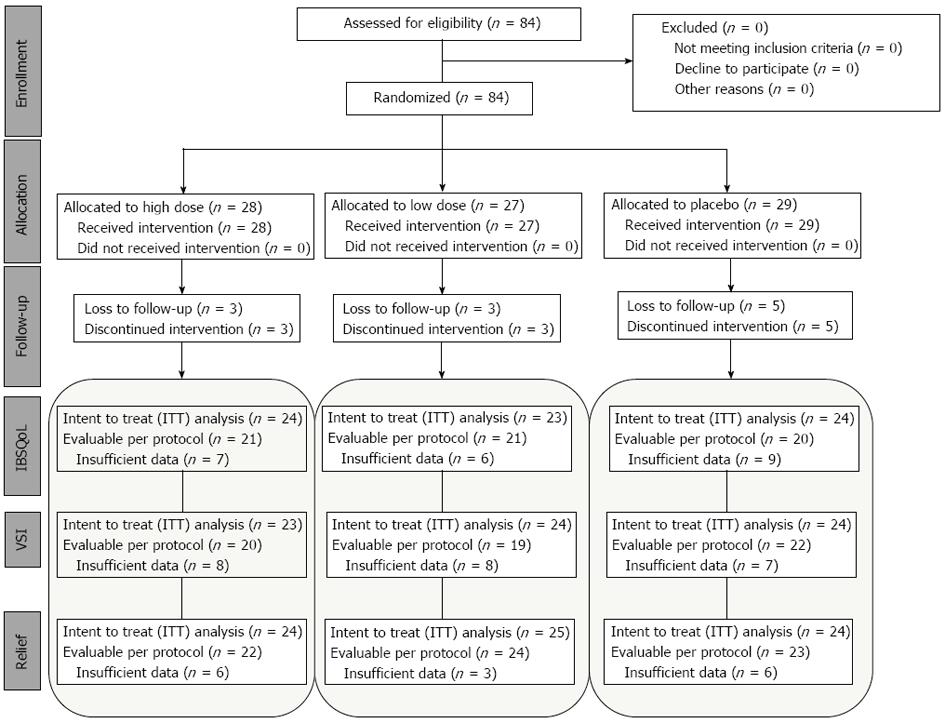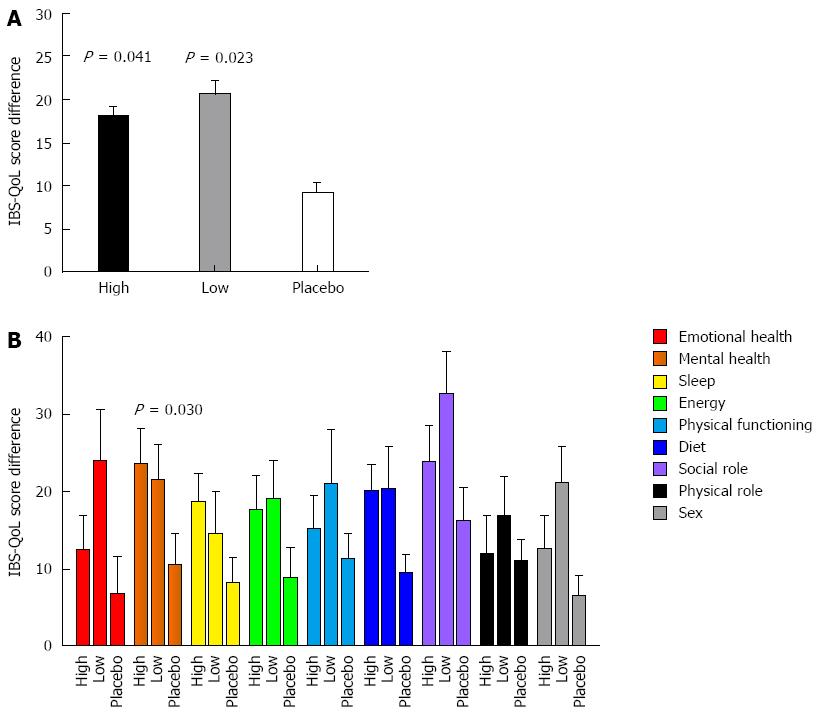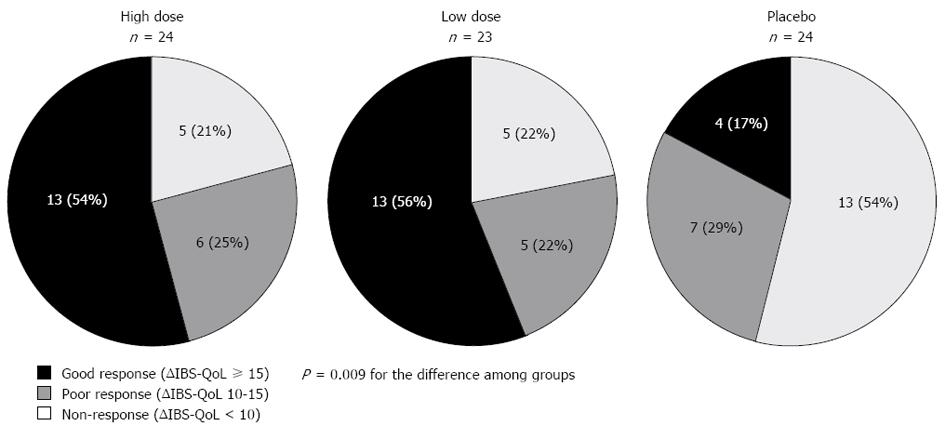Copyright
©2014 Baishideng Publishing Group Inc.
World J Gastroenterol. Jul 14, 2014; 20(26): 8709-8716
Published online Jul 14, 2014. doi: 10.3748/wjg.v20.i26.8709
Published online Jul 14, 2014. doi: 10.3748/wjg.v20.i26.8709
Figure 1 Patient flow through the study according to CONSORT guidelines[37].
Note the similar number of loss to follow-up in all treatment arms. IBSQoL: Irritable bowel syndrome-related quality of life; VSI: Visceral Sensitivity Index.
Figure 2 Irritable bowel syndrome related quality of life score improvement compared to baseline after 42 d of treatment.
A: Global scores improved significantly more in both treatment groups than placebo (Kruskall-Wallis test); B: Among the different domains, the mental status showed a significant improvement when compared to placebo.
Figure 3 Irritable bowel syndrome-related quality of life score response to probiotic and placebo therapy.
Good response was defined as score improvement ≥ 15 points; poor response as score improvement 10-15 points; and non-response as score improvement < 10 points. The number of responders (score increment > 10) was significantly larger in both groups of patients treated with probiotics than in those treated with placebo (χ2 test). IBSQoL: Irritable bowel syndrome-related quality of life.
- Citation: Lorenzo-Zúñiga V, Llop E, Suárez C, Álvarez B, Abreu L, Espadaler J, Serra J. I.31, a new combination of probiotics, improves irritable bowel syndrome-related quality of life. World J Gastroenterol 2014; 20(26): 8709-8716
- URL: https://www.wjgnet.com/1007-9327/full/v20/i26/8709.htm
- DOI: https://dx.doi.org/10.3748/wjg.v20.i26.8709











